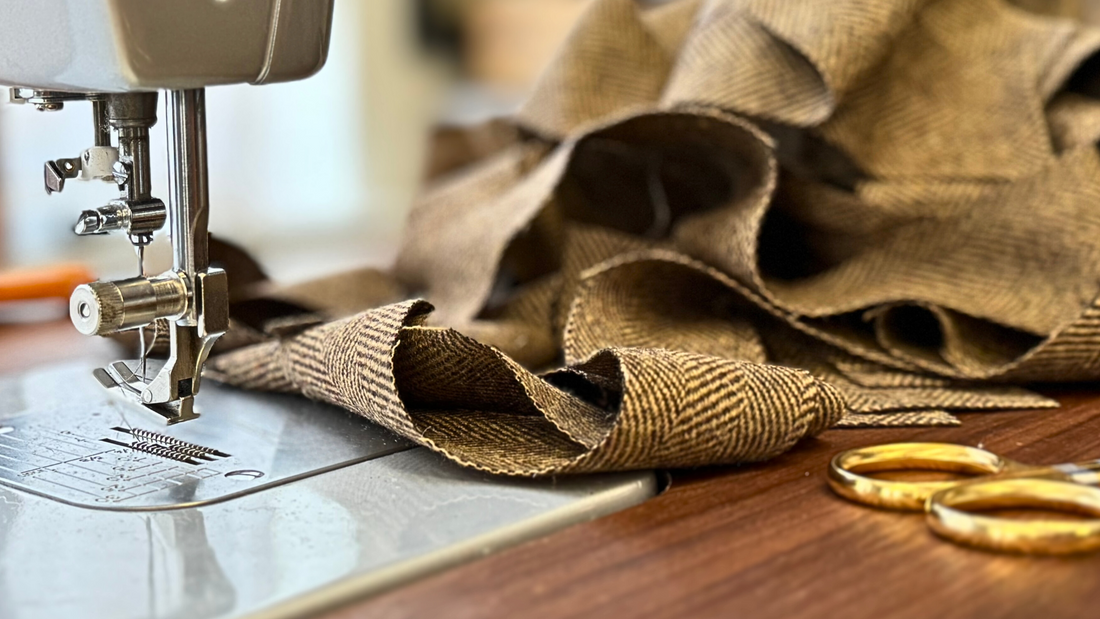
Quality & Sustainability
Share
Why are Standards So Important?
It's been said that the single most important standard is having one. When it comes to growing a business, standards determine everything: what you provide, how you approach a market, business practices, and how customers, competitors, and industry players perceive you. A strong identity emerges from an ability to define your purpose and what you will—and won't—do to achieve it. The hard part comes in balancing the standards you've chosen to adopt with sourcing, production, financial, and market realities.
We caught up with Ashley to talk about the standards that drive DandyLion's mission and get a behind-the-scenes look at how standards are guiding the company's path forward.
What standards drive DandyLion?
Quality and sustainability. Personally, I've always chosen high-quality products over lower-priced, mass-marketed options. You can't fake quality and I'm happy with a few, well-made items rather than closets or kitchens full of stuff. Sustainability is due partly my Vermont background but the amount of waste—particularly in fashion and textiles—that goes into landfills is appalling to me. Mass consumerism and a disposability mindset are wreaking havoc on the environment and our resources.
How do you define "quality" for DandyLion products?
There are two parts to quality. The first part is our design and production process. We're not copycats—each product is an original design that has gone through extensive prototyping to arrive at a solution that functions superbly, is balanced and pleasurable to use, and can be handcrafted within reasonable cost and time parameters. Production is by hand. I sew and work on our wood products, and our production team is really a team of specialized craftspeople dedicated to handcrafting each individual item.
The second part of quality is the materials we use. Our textiles are a great example. Fabrics are premium-quality wools, cashmere, alpaca, mohair, cotton, linen and other materials originally intended for the highest-quality men's suits and designer apparel. They're manufactured mostly in Italy and the UK by family-owned firms that source the world's finest natural fibers and have woven the finest fabrics for decades or even centuries. That quality of fabric is simply not produced in the U.S. currently. We are able to source Loro Piana, de Le Cuona, Holly Hunt, Hugo Boss, Ralph Lauren, Rosemary Hallgarten, Harris tweed, and other well-known brands—as well as exotic fibers, such as yak. Our natural pillow fills are a mix of goose down and duck feathers. Our wood products are solid wood, sourced locally. We don't compromise on those standards.
How do you incorporate sustainability?
I'll say right up front that defining sustainability is difficult because different people have different standards by which they decide something is "sustainable." There are multiple global standards that measure different parts of a business. That said, we aim to be as sustainable as possible over the things we can control.
Our largest contribution to sustainability is in our fabrics. We only use deadstock—excess fabric that was destined for the runway but ends up in warehouses or landfills. So far, we've saved over 1,000 yards of fabric from landfills. Our cutting and production methods utilize every possible inch of fabric to minimize waste. We save every scrap and donate them to FABSCRAP in Brooklyn, New York. FABSCRAP is a nonprofit organization that works to end commercial textile waste and create a circular economy for fabric.
People have challenged me with the fact that we primarily source fabric from Europe, so having to transport it from there to here is not sustainable. I take the position that it would otherwise go to a landfill, we're recycling it, shipments from Europe are coming here anyway, and the fabric quality cannot be duplicated in another way. We're committed to maintaining quality while mitigating any less-sustainable factors.
For wood products, we source locally grown and sustainably harvested woods. These include cherry, maple, and walnut. Wood scraps also go to a secondary use, such as animal bedding. Our long-range goals as a company include aiming for B corporation certification. That's a process.
What else should people know?
I think people need to understand that another aspect of sustainability is the human one. Many of the manufacturers we source from are vertically integrated or committed to improving the futures of the people producing their raw materials. One manufacturer knows every pair of hands that has grown and prepared their fibers—with blockchain traceability. Others we work with support entire communities of people who raise animals, gather fibers, and prepare them for production. DandyLion hires only local individuals for our production processes, as well as small business partners for other company functions. We work with local farmer's markets. Helping to sustain the people of our local community ripples outward.
This has been great—thank you. What's next?
I think one thing to keep in mind is that we have a well-defined target market and audience. It's not a mass market, and so we must be very intentional about spending our time and focusing on those potential customers. It's always a dance between marketing, producing, selling, and planning. We have several exciting opportunities in front of us right now, and they have come as a result of our commitment to quality and unique products. I believe we're absolutely on the right track and we're excited to see some of them come to fruition soon.
